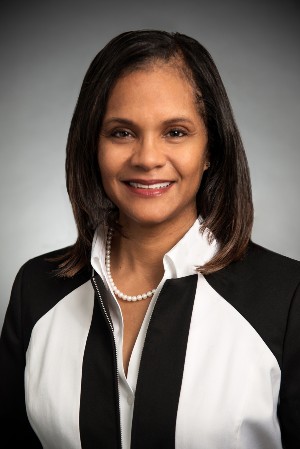By Toi Harris, MD, Senior Vice President and Chief Equity, Diversity and Inclusion Officer for Memorial Hermann

Health Equity is a Priority
Equity and equality are closely intertwined, but at their core, they are two different things. While equality can be defined as giving people the same resources and opportunities, equity recognizes the different circumstances among individuals—and that those circumstances can still hold people back even if they are provided the exact same resources and opportunities as others. To promote health equity, we must dismantle barriers that hinder people from attaining good health and establish pathways that ensure everyone has a fair and just chance to reach their highest level of health. Making health equity a top priority is essential for genuinely improving community health.
A 2022 study by Deloitte estimated that $320 billion is spent annually to address the effects of health inequities in the U.S. If we do nothing to address it, this cost could increase to more than $1 trillion and exacerbate the current challenges in affordability, quality and access to care.
At the Memorial Hermann Institute for the Advancement of Health Equity, our goal is to address health equity at its core, and that includes addressing inequities that are pervasive in our communities, including social determinants of health. The U.S. Centers for Disease Control and Prevention describes social determinants of health as factors outside of our hospital and clinic walls that influence an individual’s health, including the conditions in which we are “born, grow, work and live,” and the forces and systems that impact our everyday life.
To promote health equity, we must dismantle barriers that hinder people from attaining good health and establish pathways that ensure everyone has a fair and just chance to reach their highest level of health.
The Role of Social Factors in Health Outcomes
Health inequities exist across Greater Houston and can be attributed to a variety of social factors. One pressing issue is food insecurity, affecting over 1 million individuals who struggle to consistently access nutritious food or who are forced to make difficult choices between purchasing food or meeting other essential needs, such as housing, utilities or transportation. Additionally, education plays a significant role in health inequity, with approximately 24% of individuals in the Greater Houston area having a high school diploma as their highest level of education, while 16% have not completed high school. Income disparity is another critical factor, with close to 7% of individuals aged 16 or older in Harris County facing unemployment. Housing insecurity is another pervasive challenge, as highlighted by a 2022 study which revealed that 40% of Black or African American households and 37% of Hispanic households in Houston struggle to pay rent or mortgage payments. A staggering 51% of Harris County families allocate 30% or more of their household income towards rent. These social factors contribute significantly to the health inequities experienced in the Greater Houston area.
Addressing Barriers to Health
Memorial Hermann recognizes that many of the communities we serve have been marginalized historically and, subsequently, are unevenly impacted by key social determinants of health. Tackling those disparities to empower everyone to achieve the best possible health is one of our mission goals. We contribute approximately $500 million back to our community each year through a number of programs focused on the uninsured and under-insured and addressing social determinants of health.
For example, our Neighborhood Health Centers help bridge the gap for individuals and families without private health insurance who do not qualify for federal aid by providing them with preventive, acute and chronic care at affordable rates. Our Health Centers for Schools support the primary medical, dental and mental health needs of children and teenagers by providing year-round care, regardless of insurance status or the ability to pay. Memorial Hermann also hosts programs to provide education and access to healthy food, as well as physical activity and social cohesiveness. In addition, our system is a part of the Healthcare Anchor Network, wherein we provide employment opportunities and engage in local purchasing, housing support and additional socioeconomic efforts in neighborhoods surrounding some of our community hospital campuses.
The Memorial Hermann Institute for the Advancement of Health Equity will build upon existing work and serve as a coordination hub for these efforts, while leading and assessing initiatives designed to reduce differences in health outcomes across our community. Achieving health equity requires time, commitment and significant efforts, but by investing in and actively addressing social, economic and environmental factors that hinder good health, organizations can make a tangible and necessary difference for individuals and families.
Final Thoughts
Achieving health equity is essential for improving community health. That means tackling the disparities that exist outside our hospital and clinic walls, which play an outsize role in determining health outcomes. They include the conditions in which we are “born, grow, work and live,” and the forces and systems that impact our everyday life.
About the Author
